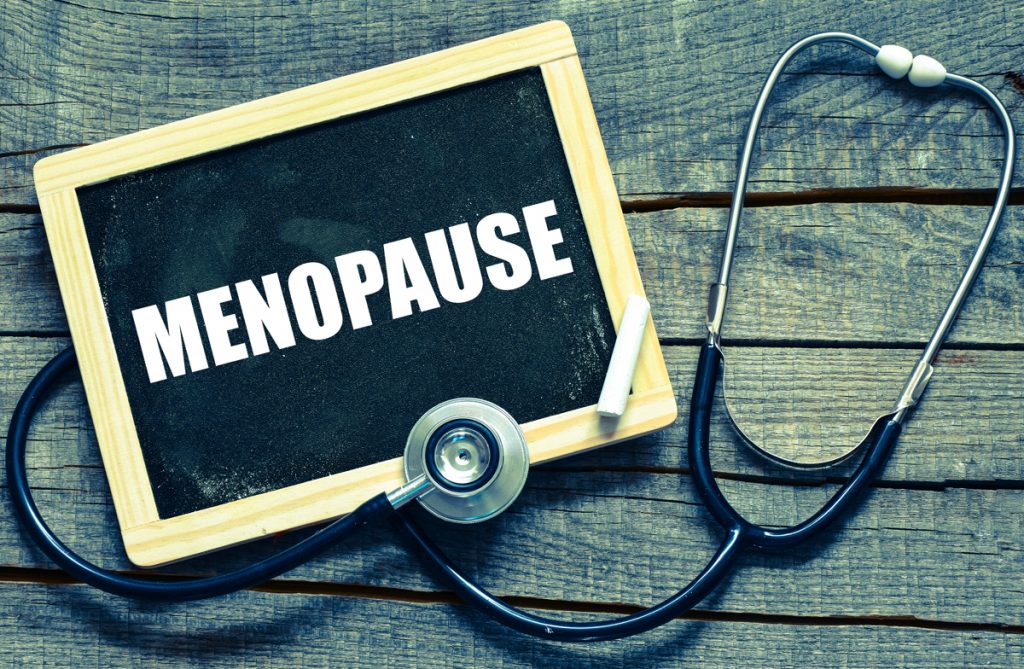Tired of the glassy-eyed look and the shoulder shrug from your providers when you tell them about your peri and menopausal symptoms? Here’s why they should be listening!
The menopausal transition includes a complex interplay of physical, emotional and societal factors that influence our perception of this experience and our quality of life. A major frustration among mid-life women is the absence of empathy and medical knowledge specific to this stage of life which arguably has led to over 70% of women not seeking care from traditional medical practice. Instead, women are turning to the internet, social media and other health professionals to find relief from their symptoms.

This article published in the January 2022 issue of the journal Menopause provides evidence of the importance of management of the menopausal experience and potential health implications for leaving symptoms untreated.
Treatment of menopausal symptoms: concomitant modification of cortisol
Cagnacci, Angelo MD, PhD1; Xholli, Anjeza MD1; Fontanesi, Francesca MD2; Neri, Isabella MD3; Facchinetti, Fabio MD3; Palma, Federica MD3 (Author Information)
Menopause: January 2022 – Volume 29 – Issue 1 – p 23-27
Cortisol is a hormone secreted by the adrenal glands in response to stress. It is part of a cascade of hormonal responses that helps us contend with an immediate threat. Once the inciting event is gone, this hormonal cascade returns to baseline.
Chronic stressors, which can include environmental/life stressors, alcoholism, anxiety, depression, among others, can result in an ongoing stress response and chronically elevated cortisol levels. It is well-known that long-term elevation of cortisol has been associated with elevated blood sugar, high blood pressure, low bone mass, decreased cognitive function, and accelerated aging.
The menopausal transition is associated increases in anxiety and depression, physiological changes that can be bothersome including hot flashes, weight gain, relationship strain along with a whole host of difficulties. This study seeks to determine if there is a relationship between the symptoms of menopause and 24 hour urinary cortisol levels and if effectively treating those symptoms results in a decline in urinary cortisol.
Goal of the Study
Evaluate the association between menopausal symptoms and 24 hour urinary cortisol and whether treatment of these symptoms results in a concomitant change in 24 hour urinary cortisol levels.
Study Participants
- 72 healthy menopausal women
- Average age of 52.8 years
- Average 3 years since onset of menopause.
- Experiencing symptoms of menopause who were not undergoing formal treatment of these symptoms.
Methods
- Menopausal symptoms were evaluated using Greene’s Climacteric Scale scoring system. This includes 21 symptoms including hot flashes, anxiety, physical symptoms and sexuality.
- 24 hour urinary cortisol was collected before and after the 12 week study period.
- 72 study subjects were randomized to receive treatment with either hormone therapy, phytoestrogens or acupuncture over a 12 week period.
Results
- At the start of the study period, Greene’s Climacteric Scores correlated strongly with 24- hour urinary cortisol levels. The higher the score, the higher the cortisol levels.
- Most notable associations seen with anxiety, depression and physical symptoms (somatization).
- After 3 months of treatment, Green’s Climacteric Scores and 24- hour urinary cortisol levels significantly decreased.
- Sexuality related symptoms did NOT exhibit the same decrease.
- There were no differences seen with the type of treatment that the test subjects received.
Author’s Conclusions
“The data indicate that improvements of symptoms, induced by any means, can reduce cortisol exposure, and possibly its deleterious effect on a woman’s health. This can be of particular importance for those women with severe and long-lasting menopausal symptoms”.
In My Humble Opinion…
The big take-away from this study is that the menopausal experience matters! Quality of life and physical well-being go hand in hand. What we experience every day needs to be listened to and effectively addressed. The fact that the correlation with cortisol levels was significant only when the entire Climacteric score was considered (as compared to looking at symptoms individually) supports this notion that what matter most is the total experience and not just individual symptoms.
Further, active treatment and symptom relief is associated with a change in cortisol levels. Whether relief is achieved with hormone therapy, acupuncture, counseling, supplements – or whatever else – improvement in symptoms was strongly associated with a reduction in cortisol levels, which may have implications for long term risk of cardiovascular disease, cognition, blood sugar levels among other chronic conditions.
So the next time your provider gives you the “eye roll”… or the “shoulder shrug” and you feel like they are telling to you “just deal with it”, find a new provider who specializes in menopausal medicine and take your experience into your own hands.
Fit Pros: Offer menopausal and perimenopausal women an individualized approach to training, nutrition and wellness as a Menopause Health and Fitness Specialist.

Article reprinted from Athletic Aging with author permission.
Dr. Carla DiGirolamo is a double Board-Certified Obstetrician/Gynecologist and Reproductive Endocrinologist who specializes in the care of reproductive age and mid-life women. Carla completed her residency training in Obstetrics and Gynecology at Brown University Medical School/Women and Infants’ Hospital and her Reproductive Endocrinology training at the Massachusetts General Hospital at Harvard Medical School. She is a North American Menopause Society (NAMS) Certified Menopause Practitioner and has been featured in multiple podcasts and speakerships at various events discussing the physiology of the hormonal changes of menopause, hormone therapy and functional fitness training.

